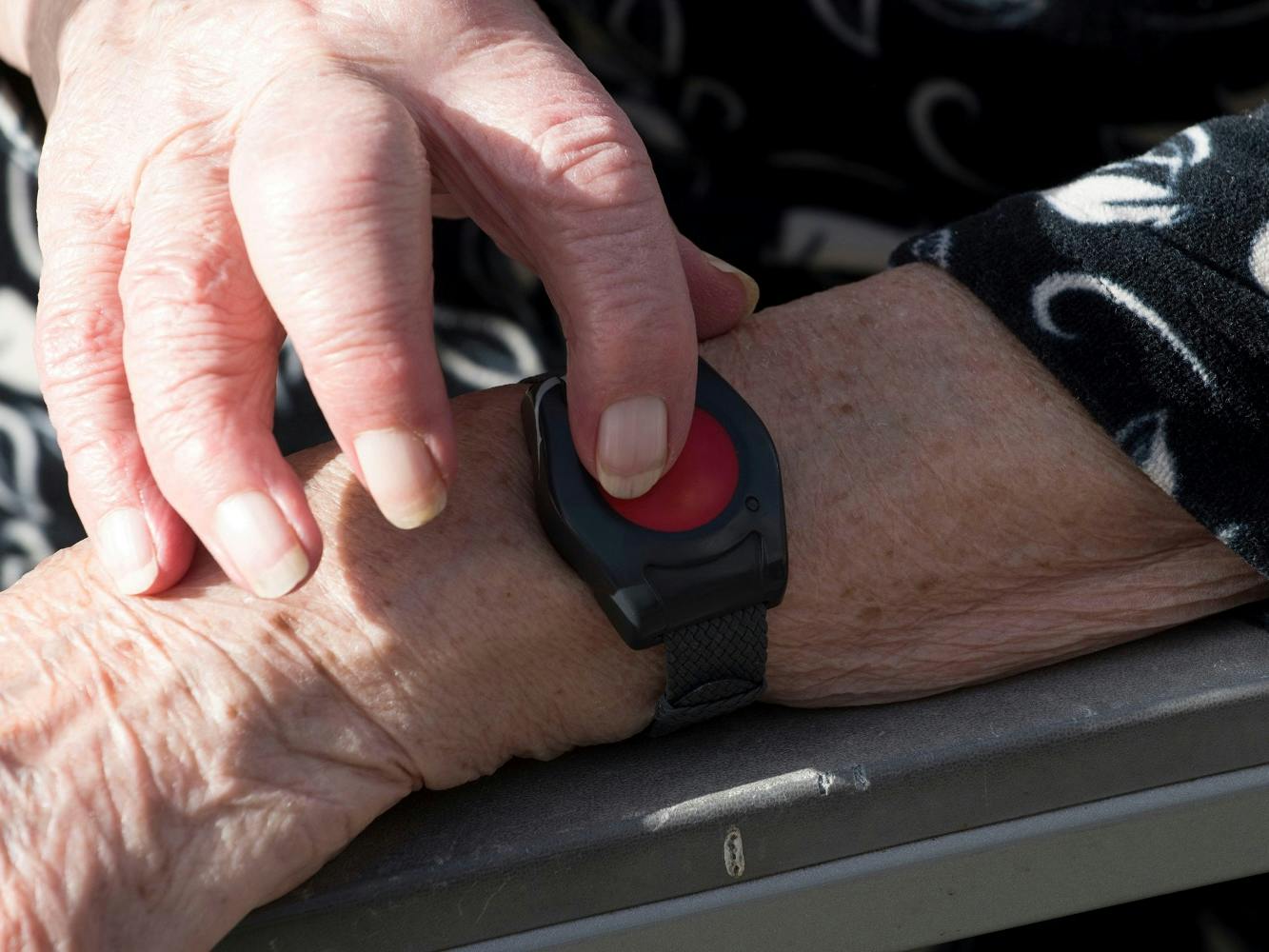
With medical alert systems, aging in place is easier than ever. But what will Medicare cover?
You may remember the “I’ve fallen and can’t get up!” commercials, which showed an older woman in a scary situation – stuck on the floor with no one around to help. You may wonder if Medicare will cover Life Alert or other types of medical alert systems. We will answer this question, but first – let’s look at the reasons for and types of personal emergency response systems.
Why are medical alert systems necessary?
Today, 66% of adults aged 55 and older report that they plan to age in place, which means they prefer the idea of using in-home care services as needed instead of moving to a nursing facility or continuing care retirement community.
However, this independence and privacy comes at a cost, as no one is around to ensure that the older adult is safe and healthy. A medical alert system gives peace of mind to older adults and their caregivers. They are easier to use in an emergency than cell phones, and some can be utilized when a person can’t speak.
Types of medical alert systems
The type of medical alert system you choose for yourself or your loved one depends on many factors. Some are specifically made for those aging in place. Other people utilize technologies, such as in-home assistants or smartwatches, as emergency communication devices.
Here are some of the most common types of systems.
Pendant or bracelet medical alert systems
The Life Alert commercial discussed in the introduction is an example of a medical alert system. With this type of system, the older adult wears a waterproof necklace or bracelet at all times. When they need assistance, they push the button on the device, which can run off a landline or cell phone network.
Some pendant or bracelet-style alert systems are monitored. So, if the button is pushed – or a fall is detected – an operator will ask if emergency assistance is needed. The person working at the emergency call center can call a friend or family member – or 911 – on the person’s behalf.
Even if the system is not monitored, most devices are able to call 911 and provide the person’s home address, details about their medical history, and instructions on how to get inside the house.
In-home assistants
Some people rely on Alexa or Google Home in-home assistant devices for help during emergencies if their cell phone is unavailable. A voice command can activate such devices, and the systems can call relatives, friends, or emergency services for help.
Smartwatches
A smartwatch can have GPS that can help locate a person. Some also have health monitoring systems that can flag anomalies in normal body functions. Also, some smartwatches have fall detection and will call 911 in the event of a fall. Regardless of if the smartwatch has that feature, the device can be used as an emergency communication device.
Regardless of what type of system is used, there are costs involved. You need to pay for the cost of medical alert system activation fees and the device. In addition, you may need to pay a monthly fee for monitored services and fall detection. The monthly fee ranges from $20 to $50.
Does Medicare cover medical alert systems?
In most cases, Original Medicare does not cover medical alert devices.
Medicare and Medicaid offer coverage for healthcare services or supplies that are deemed to be medically necessary. Even though Medicare Part B covers durable medical equipment such as wheelchairs, Medicare (and most insurance companies) don’t view medical alert devices as falling within this category.
However, Medicare Part C (Medicare Advantage plans), while required to provide the same benefits as Original Medicare, may offer additional coverage. Contact the health insurance company that offers the Medicare Advantage plan directly to check whether your plan’s benefits will cover this cost.
Please understand that emergency services are covered even if a person does not have Medicare coverage for their monitoring services or devices. Medicare Part B covers ambulance services, and Medicare Part A covers necessary inpatient hospital stays.
Additional resources
- ClearMatch Medicare: Find a Medicare Plan
- Freddie Mac: Majority of Adults Likely to Age in Place



